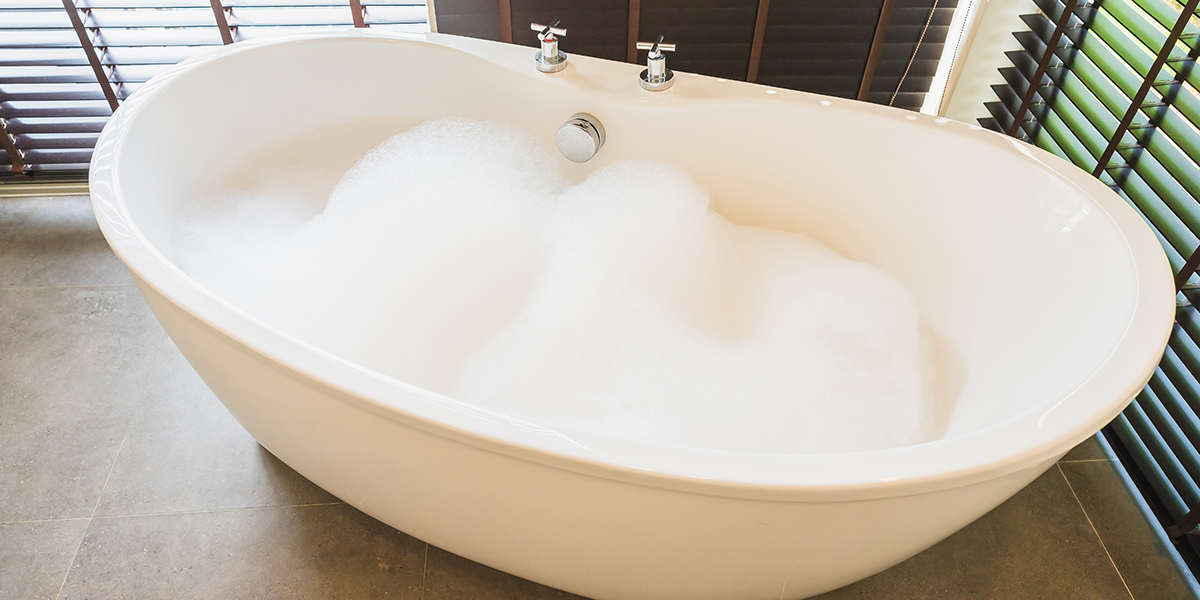Are you interested in insight about Why is There Sewage Coming Up Through the Bathtub?

Sewage back-up in the bath tub can be a distressing and unsanitary trouble for any property owner. Not only is it inconvenient, however it also postures significant health risks and shows underlying concerns with the plumbing system. Understanding why sewer is coming up through the tub is essential for taking appropriate action to attend to the issue successfully.
Intro to the Issue
Usual Factors for Sewage Back-up
Blockages in the Drain Line
One of the most usual reasons for sewage back-up is a blockage in the sewer line. This can happen as a result of the build-up of debris, oil, or foreign objects in the pipelines, preventing appropriate flow and creating sewer to back up right into your bathtub.
Tree Origin Invasion
Tree origins looking for wetness and nutrients can penetrate sewer lines with small splits or joints. Gradually, these origins can grow and broaden, triggering significant damages to the pipelines and bring about sewage back-up issues.
Recognizing the Issue
When sewer draws back up into the bath tub, it's a clear indicator of a trouble with the drainage system. The wastewater that must be flowing away from your home is instead discovering its way back right into your living space, which can lead to considerable damages and health hazards.
Possible Reasons
Several aspects can add to sewer backup in the tub. From clogs in the sewage system line to problems with the plumbing facilities, recognizing the root cause is essential for finding a service.
Aging Infrastructure
Older homes might have obsoleted plumbing systems that are a lot more susceptible to rust, cracks, and wear and tear. As pipes age, they end up being much more susceptible to leaks and blockages, enhancing the possibility of sewer backup occurrences.
Heavy Rainfall or Flooding
During periods of heavy rainfall or flooding, the drain system may come to be overloaded with excess water, triggering backups and overflows. This can lead to sewage backing up right into tubs and various other fixtures inside the home.
Signs of Sewage Backup
Foul Odors
Unpleasant odors emanating from drains or fixtures, especially in the restroom, may show sewage backup problems. These odors are typically strong and relentless, signifying a trouble that requires immediate interest.
Slow Draining Fixtures
Bath tubs, sinks, and toilets that drain slowly or otherwise at all could be experiencing sewer back-up. If multiple fixtures are affected simultaneously, it's most likely that the concern originates from a common factor, such as the major drain line.
Gurgling Sounds
Odd gurgling or gurgling sounds originating from drains when water is running somewhere else in the house are indicative of air caught in the plumbing system. This air buildup can result from sewage backup and must be checked out quickly.
Health Threats Connected With Sewer Backup
Contamination of Water System
Sewage back-up can contaminate the water in your house, posturing a major health danger to you and your family. Direct exposure to contaminated water can cause gastrointestinal concerns, skin infections, and various other illnesses.
Mold Development
Moisture from sewer backup can create optimal conditions for mold and mildew growth in your home. Mold and mildew spores can intensify respiratory system troubles and cause allergic reactions in delicate individuals, making timely cleanup vital.
Spread of Illness
Sewer consists of unsafe bacteria, infections, and bloodsuckers that can trigger a series of diseases, including hepatitis, cholera, and gastroenteritis. Entering contact with sewer or infected surfaces puts you in jeopardy of infection.
Cleaning Up After Sewer Backup
Sanitation Procedures
Thoroughly sanitize and sanitize impacted locations after sewage back-up to get rid of dangerous germs and stop mold and mildew growth. Usage suitable cleansing items and protective gear to ensure safe and effective cleanup.
Remediation of Influenced Locations
Fix any damages to floor covering, wall surfaces, or components brought on by sewer backup. Depending upon the extent of the damage, you might need to replace carpets, drywall, or various other products to restore your home to its pre-loss condition.
Immediate Actions to Take
Turning Off Water
In case of sewage backup, it's essential to switch off the water to stop more contamination and damages. Situate the main water shutoff valve in your house and closed it off until the issue can be solved.
Speaking To an Expert Plumber
Handling sewage back-up is not a do it yourself work. Get in touch with a licensed plumber with experience in handling sewage-related problems to evaluate the scenario and carry out required repair work or cleanings.
Preventing Contact with Polluted Water
Until the sewage backup is dealt with, prevent contact with infected water to prevent the spread of microorganisms and pathogens. Use safety equipment if you should be in the affected location and wash your hands thoroughly later.
Preventive Measures
Routine Maintenance of Sewer Lines
Set up normal evaluations and maintenance of your drain lines to identify and address possible issues before they intensify into significant issues. This can include clearing out debris, checking for tree origin invasion, and fixing any broken pipes.
Installing Backwater Valves
Think about installing backwater shutoffs in your plumbing system to prevent sewage from flowing back right into your home during periods of heavy rainfall or flooding. These shutoffs instantly close when water draws back up, securing your property from contamination.
Proper Disposal of Family Waste
Prevent purging anything besides toilet tissue and human waste down the toilet to prevent blockages and blockages in the drain line. Dispose of grease, oil, and various other family chemicals appropriately to lessen the risk of plumbing troubles.
Why is there sewage coming up from my bathtub?
These gas fumes, like hydrogen sulfide – the gas that leaves a rotten egg smell in its wake and is highly flammable and toxic – can be hazardous to your health. Sewage poses major health risks as it contains harmful bacteria and microorganisms that can be dangerous if exposed to them.
Sewage cleanup should be considered an emergency.
So, why is there sewage coming up from your bathroom? There are several common causes of a sewage backup.
The most common reason for sewage coming up through your bathroom is a clogged sewer line. All plumbing in your bathroom connects to a single drain pipe that leads to the sewer line under your house. This drain line carries all wastewater and sewage away from your home to the city’s sewer system.
When the sewer line becomes clogged or blocked, wastewater has nowhere to go but back toward your house. This results in sewage coming up through your drains, often starting with your tub or shower.
Another culprit may be the sewage ejector pump, which is used when a bathroom, laundry room or any other type of plumbing fixture is located below the level of the main sewer or septic line flowing from the house. Most commonly, ejector pumps are used in homes with basement bathrooms or laundry rooms.
When you experience sewage coming up through your bathtub, it’s always best to contact a professional. Attempts to fix a clogged sewer line without experience often lead to more plumbing damage.
Make sure that no one enters the affected area, and open as many windows as possible. Pre-treat the flooded area with small splashes of chlorine bleach. Wear protection gear like rubber gloves, a mask, and water-resistant coveralls.
https://www.shawlocal.com/the-herald-news/sponsored/2022/08/17/omega-plumbing-10199038/

I came across that piece on What to Do if Sewage Starts Coming Up Through Your Bathtub when browsing the web. Are you aware of another person who is involved in the niche? Please feel free to share it. We truly appreciate reading our article about Water Coming up Bathtub Drain.
Additional Resources